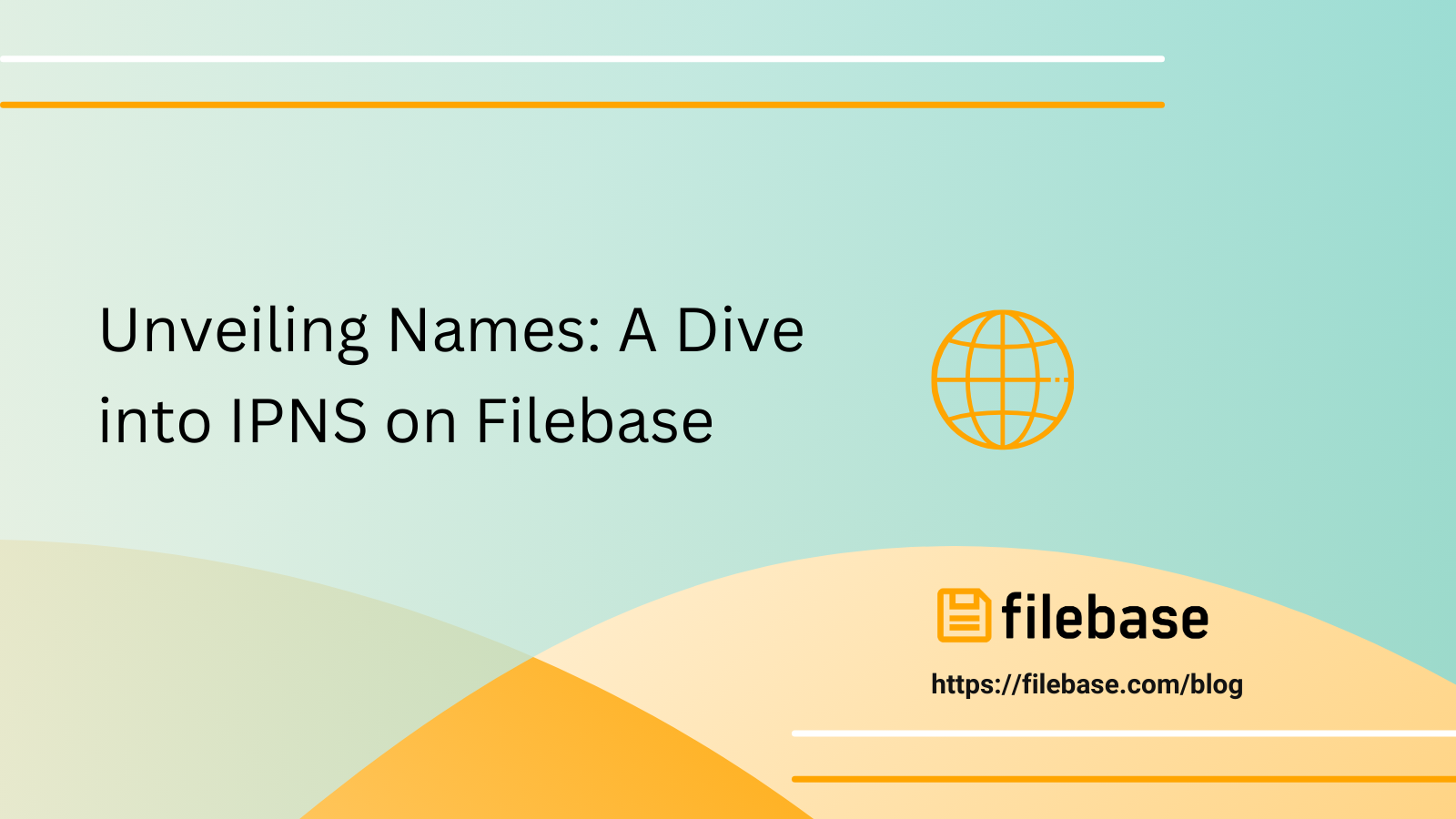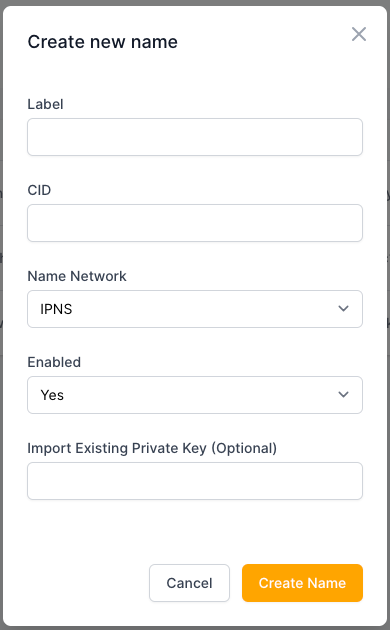Unveiling Names: A Dive into IPNS on Filebase

Today, we are happy to introduce a new feature that adds support for the InterPlanetary Name System (IPNS), aptly named "Names". This enhancement empowers users to create and manage IPNS pointer records to their immutable Content Identifiers (CIDs). In this blog post, we'll explore the essence of IPNS, delve into the mechanics of Filebase's new Names feature, and highlight its seamless integration into both the Filebase dashboard and API.
Understanding IPNS
IPNS, short for InterPlanetary Name System, is a distributed naming system built on top of the InterPlanetary File System (IPFS). Unlike traditional storage systems where content is addressed by its hash (CID) and can never be changed, IPNS records resolve to values that are mutable and can be changed, allowing users to create a stable identity that can always be pointed to the latest version of their content. This introduces a layer of flexibility, enabling users to maintain a consistent reference to their data despite changes.
Filebase Names
Filebase Names is a managed service offering that takes IPNS to the next level by providing users with an intuitive interface for creating, managing, and deleting IPNS name records. This functionality is accessible not only through the Filebase dashboard but also programmatically via the Filebase API. Whether you prefer a graphical user interface or the flexibility of automation, Filebase has you covered.
Key Pair Import and Export
Security and control over your data are paramount. Filebase recognizes this, and to ensure a seamless experience, users can import and export key pairs associated with their IPNS names. This means that you retain ownership and control of your keys, giving you the freedom to take them with you if you ever decide to discontinue using Filebase. This empowers users with the flexibility to manage their cryptographic keys in a way that suits their preferences and security requirements.
Are you already publishing your own name records using a local IPFS node? With a single click, you can import them to Filebase. We'll even fetch the latest sequence number automatically for you during import, to ensure records stay up to date.
Automatic Republishing to IPFS DHT
To further enhance the reliability and accessibility of IPNS name records, Filebase automatically republishes them to the IPFS Distributed Hash Table (DHT) every 4 hours. This ensures that the latest pointers to your immutable CIDs are consistently available across the IPFS network, providing a robust and resilient naming system.
Creating a New IPNS Name
Creating a new IPNS name record is simple. From the Filebase Dashboard, navigate to the Names page, then select Create Name. A new modal window will appear. Within this window, give the name a Label and a CID. Optionally, you can also import an existing private key, which will re-generate the hash of the corresponding public key.
A quick note on Labels: Label values are unique per account and are intended to be used as simple human-readable identifiers to help you manage the different names in your account. They're private, and only you will see them.

API Support
We've also built a new set of APIs for developers who wish to create and manage Name records programmatically.
For API routes and additional information, please view our API documentation here: https://docs.filebase.com/api-documentation/filebase-platform-apis#names
Conclusion
Filebase's introduction of the Names feature represents a significant stride forward in decentralized storage solutions. By seamlessly integrating IPNS capabilities into the Filebase ecosystem, users can now benefit from mutable pointer records to their immutable data. The ability to create, manage, and delete names through both the Filebase dashboard and API, coupled with key pair import and export functionality, affords users unprecedented control over their decentralized storage experience.
With automatic republishing to the IPFS DHT every 4 hours, Filebase ensures the reliability and accessibility of your IPNS name records, setting a new standard for decentralized naming systems.
Embrace the future of decentralized storage with Filebase Names—where control, flexibility, and accessibility converge.
Reliable IPFS, Zero Headaches
Gateways, IPNS, and seamless pinning—all in one place. Try it now
Get Started For Free!